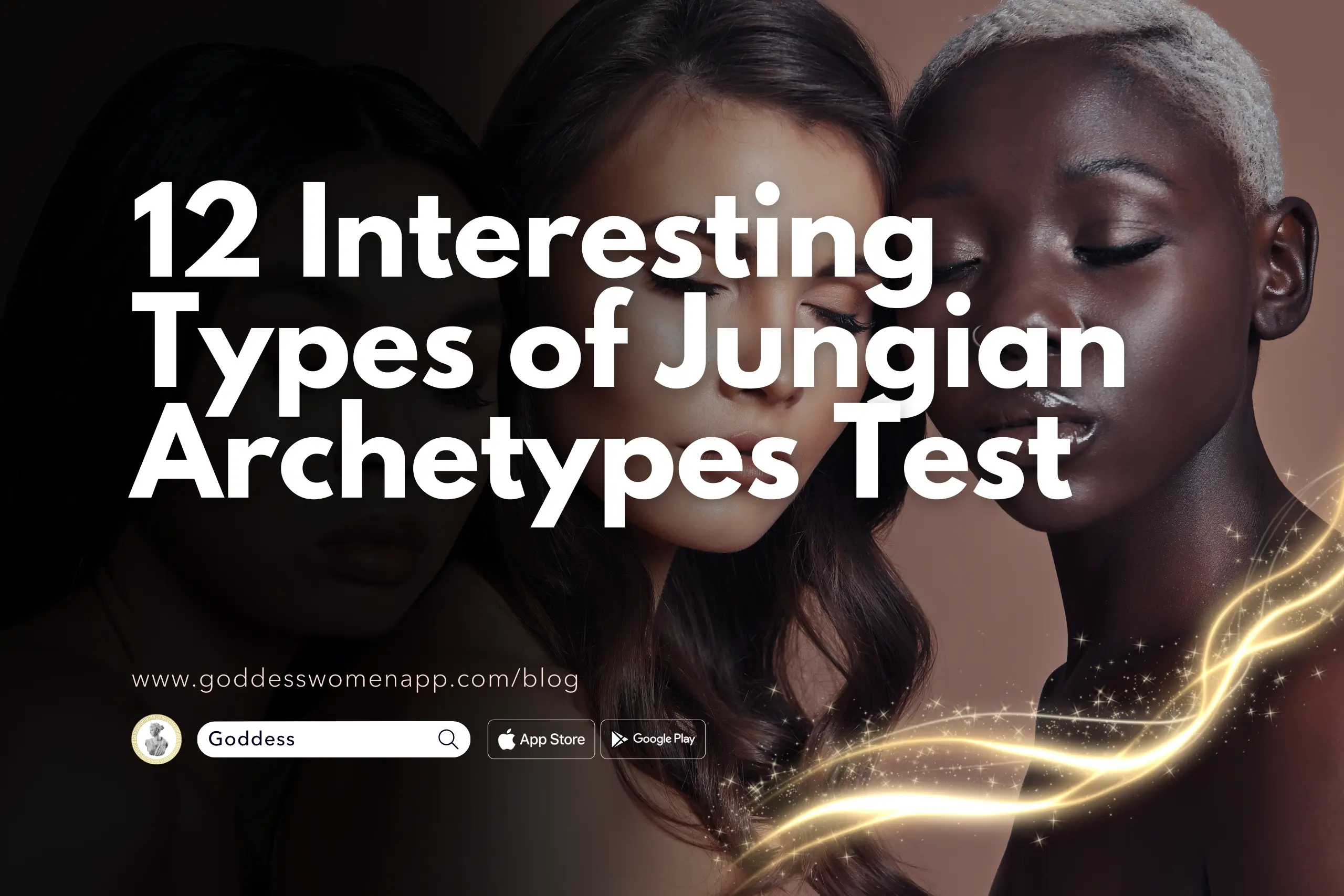Table of Contents
Introduction:
Welcome to our comprehensive guide on the Jungian Archetypes Test, a fascinating journey into the world of psychology that Carl Jung introduced over a century ago. Have you ever felt drawn to certain symbols, stories, or characters in a way that seems to speak to something deep within you? Jung’s theory of archetypes suggests that this is no coincidence. Through the Jungian Archetypes Test, you can unlock the door to your subconscious and discover the universal symbols and themes that reside within, offering profound insights into your personality, motivations, and how you perceive the world.
Understanding your archetype isn’t just an academic exercise; it’s a path to deeper self-knowledge and personal growth. Whether you’re seeking to improve your relationships, navigate career choices, or simply understand yourself better, the Jungian Archetypes Test is an invaluable tool. In this guide, we’ll explore the origins of Jung’s archetypes, break down the twelve main archetypes, and show you how to use your test results to foster personal development. Let’s embark on this journey to uncovering your inner self.

What are Jungian Archetypes?
The Foundation of Jung’s Theory
At the heart of Carl Jung’s psychoanalytical theory lies the concept of archetypes, which are innate, universal prototypes for ideas and may be used to interpret observations. Jung believed that these archetypes reside in the collective unconscious, a part of the unconscious mind that is shared among beings of the same species. It’s here that the Jungian Archetypes Test draws its power, tapping into this collective unconscious to reveal the archetypes that shape our behaviors, desires, and personality.
The 12 Main Archetypes
Jung identified twelve primary archetypes, each with its own set of characteristics, strengths, and weaknesses. These archetypes represent the fundamental human motifs of our experience as we evolved, and they evoke deep emotional responses. Here’s a brief overview:
- The Ruler: Embodies power, responsibility, and control.
- The Caregiver: Symbolizes nurturing, generosity, and compassion.
- The Creator: Represents innovation, creativity, and the creation of something enduring.
- The Innocent: Embodies purity, optimism, and trust.
- The Sage: Seeks truth, wisdom, and knowledge.
- The Explorer: Represents freedom, adventure, and the pursuit of discovery.
- The Rebel: Embodies radical freedom and disdain for the status quo.
- The Hero: Represents courage, perseverance, and honor.
- The Lover: Symbolizes passion, commitment, and intimacy.
- The Jester: Represents humor, joy, and light-heartedness.
- The Everyman: Embodies realism, solidarity, and belonging.
- The Magician: Symbolizes transformation, vision, and power.
Each of these archetypes can influence our lives in profound ways, guiding our preferences, behaviors, and life paths. Through the Jungian Archetypes Test, individuals can identify which archetypes predominate in their personality, offering insights into their core desires, fears, and talents.
In the following sections, we will delve deeper into how the Jungian Archetypes Test can illuminate your understanding of yourself and how this knowledge can be applied to various aspects of your life, from personal growth to professional development. Join us as we explore the significance of these archetypes and how they can guide you on a path to self-discovery and fulfillment.

The Significance of the Jungian Archetypes Test
Beyond Basic Personality Tests
The Jungian Archetypes Test stands apart from other personality assessments due to its deep roots in analytical psychology. Unlike tests that offer a surface-level analysis of individual traits, the Jungian Archetypes Test dives into the collective unconscious, revealing the universal patterns that govern our psyches. This test is not just about understanding who you are but also about connecting with the fundamental aspects of humanity that resonate within you. It’s a tool that bridges personal introspection with universal themes, offering insights that are both deeply personal and universally applicable.
Benefits of Knowing Your Archetype
Identifying your dominant archetypes can have a profound impact on your life and well-being. Here are some of the key benefits:
- Self-awareness: Understanding your archetype can illuminate your motivations, fears, and desires, leading to greater self-knowledge.
- Personal growth: By recognizing your innate tendencies and potential, you can work towards personal development and self-improvement.
- Career guidance: Knowing your archetypes can help you identify professions and roles where you would naturally excel, aligning your career with your personality.
- Relationship insights: Understanding both your own archetype and those of others can improve empathy and communication, leading to stronger relationships.
- Creativity and problem-solving: Embracing your archetype can unlock creative potential and offer new approaches to challenges.

How to Take the Jungian Archetypes Test
Preparing for the Test
To get the most accurate results from the Jungian Archetypes Test, it’s essential to approach it with openness and honesty. Find a quiet, comfortable space where you can reflect on the questions without distractions. It’s not about providing the “right” answers but about responding in a way that most closely aligns with your true feelings and behaviors.
Understanding the Questions
The questions in the Jungian Archetypes Test are designed to probe various aspects of your personality and how you relate to the world. They might ask you to reflect on your preferences, behaviors, and reactions in different situations. Here are some tips for taking the test:
- Take your time: Don’t rush through the questions. Give yourself the opportunity to consider each one carefully.
- Go with your gut: Your initial response is often the most accurate. Don’t overthink your answers.
- Be honest: The goal is to learn about yourself, not to project an idealized version of who you think you should be.
After Taking the Test
Once you’ve completed the test, you’ll receive a breakdown of the archetypes that are most dominant in your personality. This result can serve as a starting point for deeper exploration into your psyche, guiding you towards a more fulfilling life path. Remember, the test is a tool for insight, not a definitive labeling of your identity. Use your results as a means to explore and understand your inner world more richly.

Interpreting Your Test Results
Analysis of Each Archetype
Once you’ve completed the Jungian Archetypes Test, you’ll be presented with a detailed analysis of your dominant archetypes. These results are a mirror reflecting your deepest self, including your strengths, weaknesses, and potential areas for growth. Here’s how to interpret the key aspects of your dominant archetypes:
- Core Desires: Understand what motivates you at a fundamental level. This insight can guide your decisions and help you align your life with your true passions.
- Fears: Recognize the fears that might be holding you back. By confronting these fears, you can work to overcome obstacles and achieve personal growth.
- Talents: Each archetype comes with unique talents and gifts. Embrace these qualities and consider how you can utilize them more effectively in your life.
- Challenges: Be aware of the potential challenges or pitfalls associated with your archetypes. Awareness allows you to navigate these challenges more wisely.
Applying Your Archetype to Your Life
Understanding your archetype is just the beginning. The real power comes from applying this knowledge to your life. Here are a few ways to do so:
- Personal Development: Set goals that resonate with your archetype’s core desires and talents. Use your understanding of your fears and challenges to create strategies for personal growth.
- Career Planning: Choose a career path that aligns with your archetype’s strengths and interests. Consider how your archetype can influence your work style, relationships with colleagues, and career satisfaction.
- Relationships: Use your understanding of archetypes to foster deeper connections with others. Recognizing the archetypes of those around you can improve communication and empathy.
Real-Life Applications of Jungian Archetypes
In Personal Development
Jungian archetypes can serve as a roadmap for personal development, offering insights into our deepest desires and the paths we can take to achieve fulfillment. For example, if you identify strongly with the Creator archetype, pursuing creative endeavors, whether in your career or as a hobby, can lead to significant personal satisfaction and a sense of purpose.
In Professional Settings
Understanding the dynamics of Jungian archetypes can greatly enhance workplace relationships and career development. For instance, a Leader archetype might naturally gravitate towards management roles, while an Explorer might thrive in roles that require innovation and risk-taking. Recognizing and embracing the strengths of your archetype can lead to more fulfilling and successful career paths.
In Social and Family Dynamics
Archetypes can also illuminate the roles we play in our social and family circles, helping us understand the dynamics at play in these relationships. For example, a Caregiver archetype might find themselves naturally taking on nurturing roles within their family or friend groups, offering support and compassion where it’s needed most.
In Cultural Understanding
Jungian archetypes are not just personal; they’re universal, manifesting across cultures and histories in myths, stories, and art. By understanding these archetypes, we can gain deeper insights into cultural narratives and symbols, enriching our understanding of the world and our place within it.
In our journey through the realms of self-discovery and empowerment, the “Goddess Archetypes Quiz” stands out as a particularly enlightening tool. This quiz dives deep into the ancient wisdom of goddess mythology, offering a window into the diverse expressions of femininity that have inspired and guided women throughout history. From the nurturing embrace of Demeter to the fierce independence of Artemis, each goddess archetype embodies unique strengths, challenges, and insights into our personal growth paths. By exploring these divine feminine aspects within ourselves, we unlock a powerful source of inspiration and empowerment, connecting with the timeless energies that have shaped human consciousness for millennia.
Are you ready to uncover the divine feminine energy that resonates within you? Take the first step on this transformative journey by exploring the “Goddess Archetypes Quiz.” Discover which goddess energies are most alive in you and how they can illuminate your path to personal empowerment and self-discovery. Embrace this opportunity to connect with the ancient wisdom of goddess archetypes, and let their strengths guide you toward unlocking your full potential. Begin your journey now and share your discoveries with us. Your path to self-understanding and empowerment awaits – take the quiz today and explore the depths of your divine femininity.





